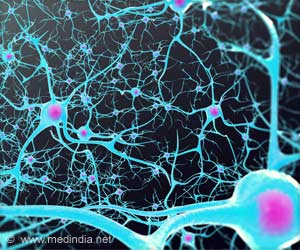
‘Polygenic score can be used to differentiate individuals with mild cognitive impairment from those who are cognitively normal.’
Tweet it Now
"Current studies of the AD polygenic risk score typically occur in adults in their 70s, but the AD pathological process begins decades before the onset of dementia," said William S. Kremen, PhD, professor of psychiatry and co-director of the Center for Behavior Genetics of Aging at UC San Diego School of Medicine. "By focusing on a younger population with cognitive impairment, we may be better able to identify patients for critical early interventions and clinical trials." Kremen and team found that someone with an AD polygenic risk score in the upper quartile was 2.5 to 3 times more likely to have MCI than someone with a score in the lowest quartile. Signs of MCI may include difficulty with word recall, forgetting appointments, or often losing personal belongings. The type of MCI most associated with memory loss is called amnestic MCI.
According to the National Institute on Aging, more people with MCI than those without it go on to develop Alzheimer’s. Approximately eight of every 10 persons who fit the definition of amnestic MCI develop Alzheimer’s disease within seven years.
"Our research team found that the polygenic score could differentiate individuals with mild cognitive impairment from those who were cognitively normal," said Kremen. "We also noticed that for study participants who had cognitive deficits other than memory problems, diabetes was three-fold more likely."
Kremen added that while this test is not yet available to primary care physicians, it may be an important tool to aid researchers in predicting MCI and AD, and, eventually, reducing the number of future cases.
Advertisement
Data for this study were collected from 1,329 men who participated in the Vietnam Era Twin Study of Aging (VESTA.). VESTA constitutes a national sample comparable to U.S. men in their age range with respect to health and lifestyle characteristics. Approximately 90 percent of subjects in this analysis were in their 50s. Diagnosis of AD was based on the Jak-Bondi actuarial/neuropsychological approach.
Advertisement
Source-Eurekalert










